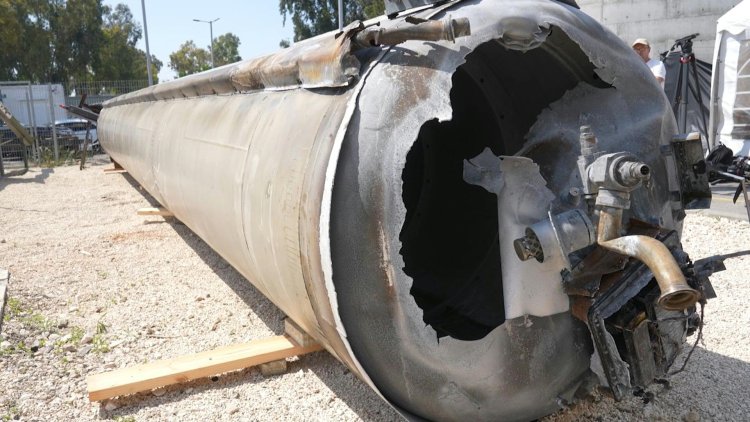Israeli Military Displays Intercepted Missile

During a media tour at Julis military base, the Israeli army displays the remains of a ballistic missile that was intercepted during Iran's unprecedented attack last weekend.
"Iran will not get off scot-free with this aggression," military spokesman Rear Admiral Daniel Hagari told reporters at Julis military base while displaying the remains of an intercepted missile.
"We will not allow this aggression in the region," Hagari said.
He said that, even as the world was talking about the "nuclear threat from Iran," the Islamic republic was "building a conventional threat, meaning to create a ring of fire across Israel".
From late on Saturday to early Sunday, Iran launched more than 300 drones, missiles and ballistic missiles at Israel but caused just minor damage, including at a military base in the country's south.
Israel and Iran traded threats after Tehran's first ever direct attack on its arch foe sharply heightened Middle East tensions and as the Gaza war ground on with no truce in sight.
Iran said its large-scale attack was an act of self-defense following a deadly Israeli air strike on its consulate in Syria, and that it would consider the matter "concluded" unless Israel retaliated.
However, Iran's President Ebrahim Raisi also warned that "the slightest action against Iran's interests will definitely be met with a severe, extensive and painful response".
Washington, Israel's top ally and arms supplier, has made clear it will not join Israel in any attack on their common adversary Iran, a senior US official said.
Since the Iranian attack, Israeli Prime Minister Benjamin Netanyahu has twice convened his war cabinet, set up after Hamas launched the October 7 attack that sparked the bloodiest ever Gaza war.
It remained unclear when Israel might strike and whether it would target Iran directly or attack its interests or allies abroad, including in Lebanon, Syria, Iraq and Yemen.















